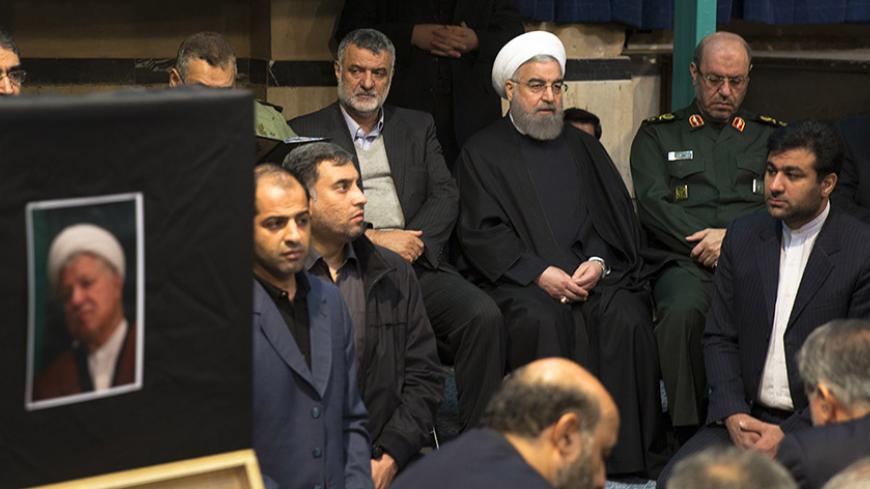TEHRAN, Iran — Ayatollah Akbar Hashemi Rafsanjani was one of the main stars in the political firmament of the Islamic Republic. Alongside Ayatollah Ruhollah Khomeini, Rafsanjani was one of the brains behind the Islamic Revolution of 1979. After the success of the revolution, he continued to be one of the main actors and, in recent years, among the main conductors of political developments in Iran.
After finishing his 1989-1997 tenure as president, Rafsanjani was treated unkindly, first by the Reformists and later by the Principlists. Yet Rafsanjani was still considered a major strategist of Iran's moderates. He played a prominent role in Iran's most recent presidential election in 2013. Rafsanjani, who did not enter the competition until the very last minute, created a massive wave in Iranian society by registering as a candidate for the 2013 vote, and after his shocking disqualification by the Guardian Council, was able to guide that very wave behind Hassan Rouhani and help get him elected as president.



